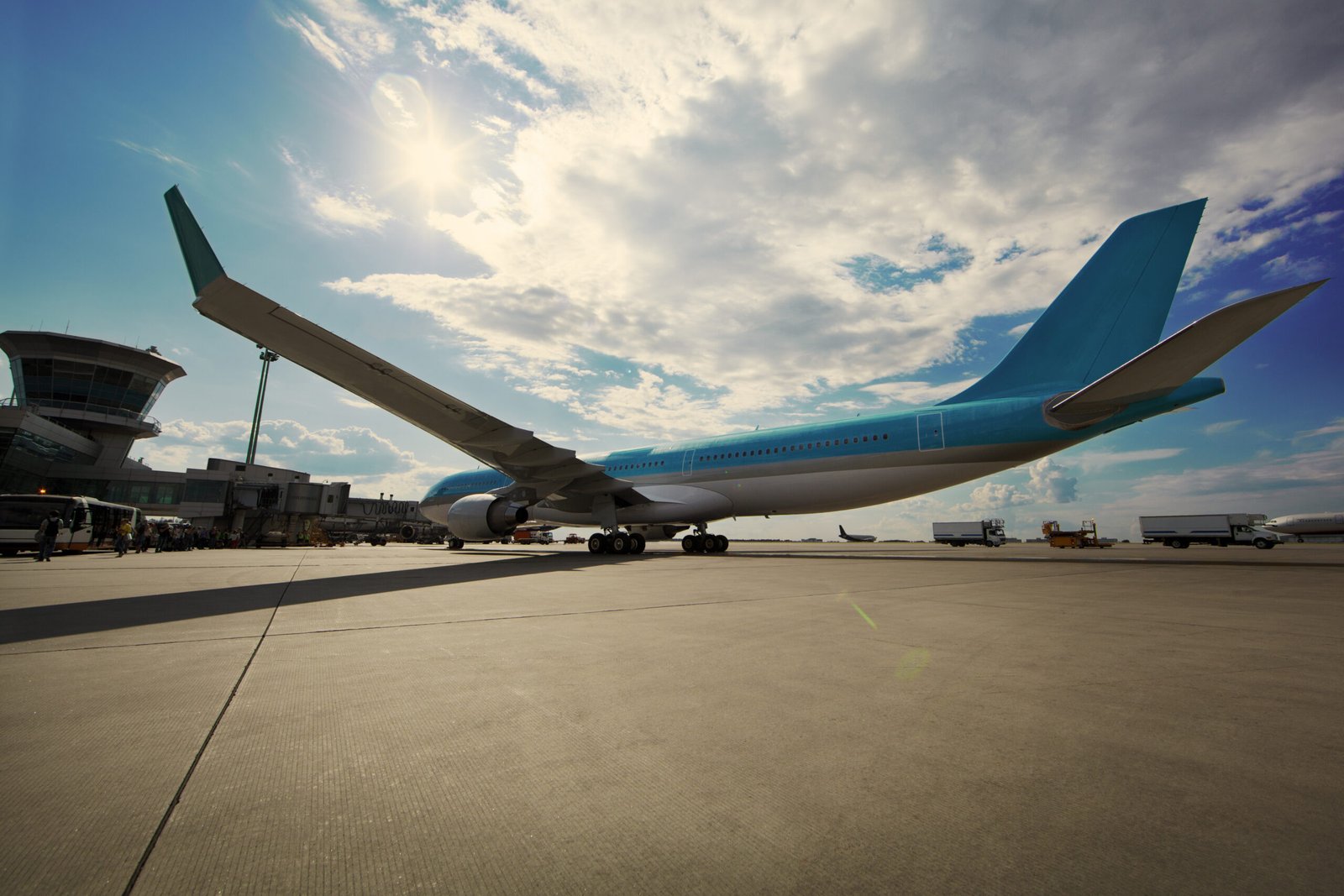aviation blogs
Skybound Adventures: Exploring Unusual Flight Paths Around the World
The world of aviation is a vast and exhilarating realm, brimming with fascinating opportunities for those daring enough to explore its heights. From aspiring pilots to aviation enthusiasts, the journey begins with education and knowledge. Let’s take a look at the various avenues available in aviation schools, delve into popular aviation blogs and websites, and discover FAA-approved flight schools and simulators that can help you kick-start your skyward adventure.
### Types of Aviation Courses
Aviation education comes in many flavors, catering to diverse interests within the field. Here are some common types of courses offered by aviation schools:
1. **Private Pilot License (PPL)**: This foundational course introduces students to fundamental flying skills, regulations, and navigation techniques necessary for piloting light aircraft.
2. **Commercial Pilot License (CPL)**: For those aiming for a career in aviation, this course builds on previous training and focuses on advanced flying skills needed for commercial operations.

3. **Airline Transport Pilot License (ATPL)**: The pinnacle of pilot certifications, ATPL programs prepare students for commanding large passenger jets or cargo aircraft.
4. **Aircraft Maintenance Engineering**: A vital aspect of aviation involves maintaining aircraft safety and performance. Programs here cover repair techniques, systems management, and regulatory compliance.
5. **Aviation Management**: More than just flying planes, this course dives into the business side of aviation—handling operations, marketing strategies, and financial management within an airline context.
6. **Flight Dispatching**: This unique program trains individuals to manage flight plans while ensuring safety regulations are adhered to before takeoff.
7. **Aeronautical Science**: Focusing on the theoretical aspects of flight dynamics and engineering principles; it’s perfect for those interested in pursuing careers as aeronautical engineers or researchers.
### Must-Visit Aviation Blogs & Websites
The digital landscape offers treasure troves of information about all things aviation! Here are some must-follow blogs and websites that fuel your passion:
**Airliners.net**: An extensive community where enthusiasts share photos, trip reports, and discussions regarding airlines worldwide.
**Flying Magazine**: Offers articles on piloting techniques, gear reviews, safety tips, industry news—everything a pilot needs!
**AVweb**: A rich source for news related to general aviation including podcasts that keep you updated while you’re on-the-go.
**Plane & Pilot Magazine**: Focuses specifically on user-friendly insights into small aircraft with practical advice tailored toward pilots.
**The Points Guy**: Perfect for those who love traveling by air but want to maximize their miles; it provides tips on travel hacking using frequent flyer programs effectively.
### FAA Flight Schools & Simulators
If you’re ready to take your passion from theory to practice through FAA-approved training institutions or simulators tailored towards budding aviators:
1. **ATP Flight School**: With numerous locations across the U.S., ATP provides comprehensive training paths leading from zero experience up through airline readiness.
2. **Embry-Riddle Aeronautical University**: Renowned globally for excellence in aerospace education; they offer degree programs across various disciplines within aviation.
3. **Boeing Academy**: Known for pioneering innovative simulator technology allowing students hands-on experience without leaving the ground!
4. **FlightSafety International**: Offers state-of-the-art simulation facilities that replicate real-world flying conditions to ensure thorough preparation for certifications.
As you embark on your journey into the skies—whether it be as a pilot or simply an enthusiast—these resources stand ready at your fingertips! Each path offers unique experiences that can lead you toward extraordinary adventures high above our earthbound existence! So buckle up; it’s time to navigate uncharted territories amongst the clouds!
The Future of Flight: Innovations Shaping the Next Generation of Aviation
As we soar into the future, the aviation industry stands on the brink of remarkable transformation. With technological advancements reshaping every aspect of flight, it’s an exhilarating time for both seasoned pilots and aspiring aviators. Education plays a pivotal role in this evolution, offering various pathways to success. Let’s explore the diverse types of aviation courses available today, examine some influential aviation blogs and resources, and highlight FAA-approved flight schools that are leading the charge in training the next generation of aviators.
*Aviation Schools by Types of Courses**
Aviation education comes in many flavors, catering to different interests and career goals. Here’s a snapshot:
1. **Pilot Training Programs**: These programs focus on developing practical flying skills. Students learn how to operate aircraft through both ground school instruction and hands-on flight experiences.
2. **Aircraft Maintenance Courses**: For those interested in keeping planes soaring, these courses cover everything from airframe systems to avionics repair.
3. **Aviation Management Degrees**: Aimed at future leaders in the industry, these programs delve into airport operations, airline management, and logistics.
4. **Air Traffic Control Training**: Students gain insights into managing aircraft movements safely and efficiently within controlled airspace.
5. **Unmanned Aerial Systems (UAS)**: As drones revolutionize industries from agriculture to delivery services, specialized training prepares students for careers in piloting UAVs.
By selecting one or more pathways offered by accredited aviation schools nationwide, students position themselves well for a bright future in this dynamic field.
*Influential Aviation Blogs and Websites**
For those who want to stay updated on trends or fuel their passion for flying through engaging content, numerous blogs and websites serve as valuable resources:
**Airliners.net**: This site features stunning photography alongside discussions about commercial aviation.
**AvGeekery.com**: A blog dedicated to all things airplane enthusiasts appreciate—from history lessons to new tech reviews.
**Flying Magazine**: It offers expert advice on flying techniques, maintenance tips, and industry news with an approachable tone.
**PilotWorkshops.com**: This platform specializes in practical flying techniques with instructional videos designed by experienced instructors.
**The Points Guy**: While travel-focused at its core, it provides insights on maximizing airline points while exploring new destinations.
Additionally, platforms like Instagram feature accounts such as @aviationdaily and @pilotlife that inspire through breathtaking aerial shots and snippets of daily life as a pilot.
*FAA Flight Schools & Simulators**
When seeking quality education grounded in safety standards set forth by authorities like the FAA (Federal Aviation Administration), prospective pilots have plenty of choices:
1. **ATP Flight School**: Known for its accelerated programs tailored for aspiring commercial pilots—offering multi-engine training using state-of-the-art simulators.
2. **Embry-Riddle Aeronautical University**: This institution is renowned globally for its comprehensive degree offerings across various aviation disciplines paired with cutting-edge facilities.
3. **Purdue University’s School of Aviation & Transportation Technology**: Boasting innovative curricula that blend technology with hands-on experience ensures graduates are prepared for modern challenges ahead.
4. **Local Flying Clubs & Community Colleges** often provide affordable options equipped with simulators that allow students to practice before taking off into real skies.
In conclusion, as we embark on this exciting era where innovation meets tradition in aviation education and training methods evolve continuously—whether you’re eyeing a career behind the controls or working behind-the-scenes—the opportunities are boundless! Embrace your journey into this skyward adventure; after all—the future is not just up there; it’s waiting for you!

Navigating the Skies: Understanding Air Traffic Control and Its Challenges
The world of aviation is a complex web of intricate systems, dedicated professionals, and advanced technologies that work harmoniously to ensure the safety and efficiency of air travel. At the heart of this operation lies Air Traffic Control (ATC), an essential service that orchestrates the movement of aircraft in our skies. To truly appreciate this critical function, one must first explore the educational pathways available for aspiring aviation enthusiasts.
Aviation schools come in various forms, each offering distinct courses tailored to different aspects of flight training. From traditional universities with comprehensive degree programs to specialized flight academies focusing solely on pilot training, options abound. For instance, many institutions provide courses in aeronautical engineering, aviation management, and air traffic control itself. Flight schools often focus on practical skills through hands-on experiences in simulators and real aircraft. These schools typically offer Private Pilot License (PPL) training, Instrument Rating (IR), and Commercial Pilot License (CPL) programs. Additionally, some institutions delve into niche areas such as drone piloting or aviation safety.
As you embark on your journey into aviation education or simply wish to stay informed about industry trends, numerous blogs and websites can serve as valuable resources. Notable aviation blogs like “Airliners.net” feature stunning photography alongside insightful discussions about commercial airlines and aircraft operations. Similarly, “The Aviation Herald” provides up-to-date reports on incidents and accidents within the industry—essential reading for anyone serious about understanding aviation safety.
In recent years, social media platforms have also become hotspots for aviation enthusiasts and professionals alike. Follow accounts like @AirTrafficControl on Twitter for real-time updates from controllers across the globe or join Facebook groups like “Aviation Enthusiasts” where members share their love for flying through photos and stories.
For those interested in pursuing a career as a pilot or air traffic controller in the United States, FAA-approved flight schools are indispensable resources. The Federal Aviation Administration (FAA) ensures these institutions maintain high standards of training to prepare students adequately for their careers. When searching for an FAA-certified school, consider factors such as location, program offerings, instructor qualifications, and student testimonials.
Simulators play a pivotal role in modern flight training programs by providing realistic environments without leaving the ground. Advanced flight simulators allow students to experience various weather conditions and emergency scenarios safely while honing their skills under pressure—an essential aspect of becoming proficient pilots or effective air traffic controllers.
However, navigating through ATC comes with its own set of challenges. With increasing global air traffic due to booming airline industries worldwide, controllers face immense pressure to manage congested airspaces effectively while ensuring passenger safety remains paramount. The integration of new technologies like NextGen systems aims to streamline communication between pilots and controllers but presents its own hurdles during implementation phases.
Ultimately, understanding air traffic control’s intricacies requires not only robust education but also continuous learning from multiple sources—be it formal schooling or engaging with online communities dedicated to discussing current events impacting aviation today.
As we look toward the future of flying amidst advancing technology and expanding horizons in travel options globally—the role played by adeptly trained personnel within ATC will remain crucial in shaping safer skies for all who dare venture aloft!
From the Ground Up: Exploring the Evolution of Aircraft Design
Aviation has come a long way since the Wright brothers took their inaugural flight in 1903. Today, aircraft design embodies cutting-edge technology, efficiency, and sustainability. But to truly appreciate this evolution, it’s essential to understand the pathways that aspiring aviators and engineers can take to delve into this fascinating world.
Aviation schools offer a diverse range of courses tailored for different interests within the field. Broadly categorized, these institutions provide programs in pilot training, aircraft maintenance, aviation management, and aerospace engineering.
1. **Pilot Training Programs**: These are designed for individuals who dream of soaring through the skies as commercial or private pilots. Courses typically cover topics such as aerodynamics, navigation, meteorology, and regulations set forth by governing bodies like the FAA.

2. **Aircraft Maintenance Programs**: For those interested in the technical side of aviation, these courses focus on ensuring that aircraft remain safe and operational. Students learn about engine mechanics, electrical systems, and airframe structures.
3. **Aviation Management Degrees**: This branch appeals to future leaders in aviation industries—those who wish to oversee operations at airports or airlines. Courses may include business administration principles tailored specifically for aviation contexts.
4. **Aerospace Engineering**: For a more technical dive into aircraft design itself, students can pursue degrees in aerospace engineering where they study everything from materials science to propulsion systems.
As you embark on your journey through aviation education or simply seek out more information about this ever-evolving field, many blogs and websites serve as valuable resources. Here’s a list worth checking out:
**Airways Magazine**: A well-respected publication covering all things aviation-related—from airline news to aircraft features.
**Flying Magazine**: A treasure trove for pilots featuring tips on flight techniques alongside product reviews.
**The Aviation Herald**: An informative platform focusing on incidents and accidents within aviation.
**Plane & Pilot Magazine**: Offers a mix of industry news along with engaging articles tailored for flying enthusiasts.
Additionally, social media platforms have become vibrant spaces for community engagement among aviators:
**Instagram** is filled with stunning aerial photography shared by pilots around the globe.
On **Twitter**, hashtags like #AvGeek attract a plethora of tweets detailing daily happenings in aviation.
YouTube channels dedicated to flight simulation and pilot experiences provide immersive content that captures both novice interest and seasoned expertise.
When it comes down to practical training facilities recognized by the FAA (Federal Aviation Administration), there’s no shortage of reputable flight schools across the country. These institutions often feature state-of-the-art simulators that replicate real-world flying conditions while minimizing risk exposure during training sessions.
Flight schools such as Embry-Riddle Aeronautical University or ATP Flight School are renowned for their comprehensive curriculum combined with hands-on experience using advanced simulators equipped with realistic cockpit layouts complete with modern avionics systems.
In conclusion, whether you’re an aspiring pilot dreaming high above clouds or an engineer fascinated by how planes are constructed from scratch—understanding various educational pathways in aviation will pave your personal runway toward success. The evolution of aircraft design continues; yet its roots lie firmly planted in educational foundations built from ground up!
From Runways to Skies: The Evolution of Air Travel
The world of aviation has evolved at an incredible pace, transforming from the dream of flight into a thriving global industry. With this growth comes the need for skilled professionals who understand every nuance of air travel. Whether you’re aspiring to become a pilot, aircraft technician, or air traffic controller, aviation schools offer a variety of courses tailored to meet these demands.
Aviation schools can be categorized based on the types of courses they provide. Firstly, there are **pilot training programs**, which encompass everything from private pilot licenses (PPL) to commercial pilot licenses (CPL) and even airline transport pilot licenses (ATPL). These courses typically combine ground school instruction with practical flight training using both real aircraft and simulators.
Next up are **aircraft maintenance programs**, where students learn about the technical side of flying. Here, aspiring mechanics dive into subjects such as airframe systems, powerplants, and avionics. These programs prepare graduates for critical roles in ensuring aircraft safety and reliability.
Another vital area is **air traffic control training**. This course emphasizes navigation procedures and communication protocols essential for managing the busy skies above us. The curriculum focuses on developing quick decision-making skills and understanding complex air traffic scenarios.
Lastly, there are specialized courses in fields like **aeronautical engineering** and **aviation management**, which cater to those interested in designing aircraft or managing aviation operations respectively. This diversity in educational paths equips students with the necessary skills to succeed in various facets of the aviation industry.
As one embarks on their journey through aviation education, staying informed about trends and developments is crucial. Luckily, numerous blogs and websites offer rich content dedicated to air travel enthusiasts and professionals alike. Some noteworthy mentions include:
1. **AirlineReporter.com** – A blog that explores current happenings in the airline industry while providing insights into new technologies.
2. **FlyingMagazine.com** – A staple for pilots offering articles on flying techniques, gear reviews, and personal stories from aviators.
3. **Plane & Pilot Magazine** – Covering everything from flying tips to product reviews; it’s an informative resource for pilots at any level.
4. **The Points Guy (TPG)** – While primarily focused on travel points maximization, TPG often covers aviation news relevant to frequent flyers.
5. **FlightAware Blog** – This platform offers a deep dive into real-time flight tracking data along with analysis on trends impacting airlines.
In addition to blogs, social media platforms serve as excellent resources for networking within the aviation community. Twitter accounts such as @AviationWeek keep followers updated on industry news while Instagram profiles like @pilotlife showcase breathtaking aerial views that inspire many aspiring pilots.

For those looking specifically at FAA-approved flight schools or simulators, there’s no shortage of options across the United States that adhere strictly to federal guidelines ensuring quality training experiences. Notable names include:
**Embry-Riddle Aeronautical University** – Renowned for its comprehensive curriculum spanning all aspects of aviation.
**ATP Flight School** – Focused primarily on accelerated pilot training designed for those eager to enter commercial flying swiftly.
**CAE Global Academy** – Offers high-fidelity simulator training alongside actual flight time experiences.
Simulators have revolutionized pilot training by providing realistic scenarios that enhance learning without risk factors associated with live flights. From basic maneuvers to emergency response drills, these tools empower future aviators with confidence before they take off into the skies.
In conclusion, as we reflect upon how far air travel has come since its inception—from wooden biplanes skimming runways to ultra-modern jets soaring through clouds—it’s clear that education plays a pivotal role in shaping its future trajectory. With a plethora of resources available today—from diverse course offerings at aviation schools to insightful online communities—there’s never been a better time to embark on an aerospace adventure!



